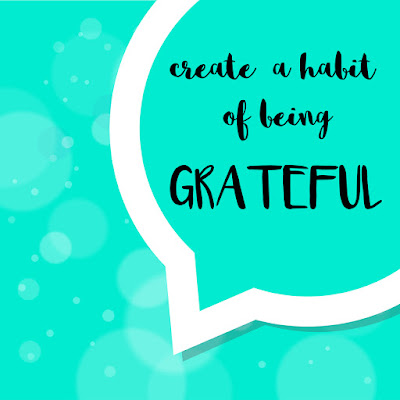Press











ABOUT Sam
SERVICES
Team Ruthless
EVENTS
GRIEFHAB™
PODCAST
RETREATS
shop
HEALING TOGETHER THROUGH THE HOLIDAYS - MAIN EVENT
HEALING TOGETHER - FOR A CAUSE: VIRTUALLY
HEALING TOGETHER - FOR A CAUSE: PILATES IN THE PARK - MICHIGAN
HEALING TOGETHER - FOR A CAUSE: VISIBLE - COLORADO
September 6-7
Jimtember Virtual Jubilee
blog
December 2nd - 8th / Metro Detroit AND VIRTUALLY
August 27th & 28th
August 30-31st
rUTHLESS IN THE ROCKIES
TEAM RUTHLESS
THE CONFIDENCE CONFERENCE
mOBILE rECOVERY dAY
Next event: September 10-23rd, Colorado
October 5-6th -
Virtual Event
September 30th, Castle Rock, Colorado
7 Groups Every week Plus Every Holiday
HEALING TOGETHER - FOR A CAUSE: Ride & ROAR - DALLAS
October 11 -12th
Stay Tuned!
FACES OF GRIEF
JOIN US
5 Secrets For Balancing Your Emotions
August 1, 2016
Varying emotions and violent mood swings are a natural symptom of many psychological challenges. You may feel happy and calm one minute, only to be swept up in an overwhelming wave of anxiety or depression the next. Navigating these vastly different emotions can be challenging on a personal level, but it can also seriously impact your relationships with your family, friends, and coworkers. This week, your online mental health counselor is here to help you stop the cycle with these simple suggestions for balancing your emotions.
1. Meditation
Meditation is an excellent technique for calming the mind and bringing balance to both your emotional and psychological state. It’s important to realize that there are many different types of meditation, and no one method is better than the other. What matters is that you find the one that resonates best with you and develop a consistent routine to incorporate it into your lifestyle. Even if you only meditate for fifteen minutes per day, you will likely notice yourself feeling much calmer and more centered overall.
2. Physical Outlets
Powerful emotions offer a release of pent-up energy. Sometimes, emotions feel stronger than they really are (or than they really need to be) so that we are forced to create an outlet for this energy release. By engaging in some sort of physical activity, you may be able to get this same release without falling victim to raging emotions. Choose a simple form of exercise (walking, running, push ups, yoga, etc) and use it to release the energy that would otherwise find its way out via your emotions.
3. Gratitude
Some people are amazed to discover what a difference a change in perspective makes. The next time you find your emotions spinning out of control, find something to be grateful for and focus on that instead. If you find yourself getting angry at being stuck in traffic due to a car accident, for example, instead be grateful that you (and your loved ones) were not involved in the wreck. By consciously devoting your energy to gratitude, your negative emotions will have less power.
4. Release Of Control
One of the biggest, most overwhelming stressors people face is the desire to control or impact situations that are, in reality, beyond their control. Worrying about how other people will react or stressing about the weather breeds unnecessary – and futile – distress. One of the biggest lessons you can learn is how to relinquish your desire to control the things that are out of your hands so that you can instead only focus on the things you can directly impact.
5. Living In The Now
Some people waste years of their lives dwelling on the past or the future, rather than focusing on the now. Constantly ruminating on the past often brings only frustration and regret, and focusing on the future opens up opportunities for unnecessary stress and worry. By living in the moment, conversely, you don’t have time worry or regret – all you can do is react to the situation currently at hand. The next time you find your thoughts wandering to the future or the past, focus on the things you are currently experiencing.
Leave a Reply Cancel reply
120 E. Front St. Loft 2 Traverse City MI 49684 &
77 Monroe Center St Ste 600 Grand Rapids MI 49503
phone : +1 (231)707-0707


Donate TO GRIEFHAB™
Donate today to help make our events and services free for everyone.
You can also donate directly to support a specific client in need.
four
three
info & Investment
two
THE FOUNDER
one
fIVE
GRAB A COPY OF MY
BOOKS & MERCHANDISE
four
three
info & Investment
two
THE FOUNDER
one


fIVE
GRAB A COPY OF MY
BOOKS & MERCHANDISE










HEALING TOGETHER EVENT
EVENTS
four
three
info & Investment
two
THE FOUNDER
one
fIVE
GRAB A COPY OF MY
BOOKS & MERCHANDISE
four
three
info & Investment
two
THE FOUNDER
one





fIVE
GRAB A COPY OF MY
BOOKS & MERCHANDISE










FACEBOOK FAMILY
GRIEFHAB™ SERVICES
FACES OF GRIEF
Our Press Features
THE BE RUTHLESS SHOW
two
three
Recent Articles
one





Coming in September! Stay Tuned.
December 2nd -8th / Metro Detroit AND VIRTUALLY
August 25th
August 30-31st
October 11 -12th
Stay Tuned!










four
three
info & Investment
two
THE FOUNDER
one





fIVE
GRAB A COPY OF MY
BOOKS & MERCHANDISE
four
three
info & Investment
two
THE FOUNDER
one





fIVE
GRAB A COPY OF MY
BOOKS & MERCHANDISE











